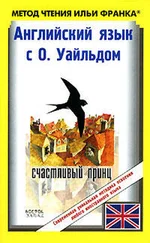Array Lang - The Book of Princes and Princesses
Здесь есть возможность читать онлайн «Array Lang - The Book of Princes and Princesses» — ознакомительный отрывок электронной книги совершенно бесплатно, а после прочтения отрывка купить полную версию. В некоторых случаях можно слушать аудио, скачать через торрент в формате fb2 и присутствует краткое содержание. Жанр: foreign_antique, foreign_prose, на английском языке. Описание произведения, (предисловие) а так же отзывы посетителей доступны на портале библиотеки ЛибКат.
- Название:The Book of Princes and Princesses
- Автор:
- Жанр:
- Год:неизвестен
- ISBN:нет данных
- Рейтинг книги:3 / 5. Голосов: 1
-
Избранное:Добавить в избранное
- Отзывы:
-
Ваша оценка:
- 60
- 1
- 2
- 3
- 4
- 5
The Book of Princes and Princesses: краткое содержание, описание и аннотация
Предлагаем к чтению аннотацию, описание, краткое содержание или предисловие (зависит от того, что написал сам автор книги «The Book of Princes and Princesses»). Если вы не нашли необходимую информацию о книге — напишите в комментариях, мы постараемся отыскать её.
The Book of Princes and Princesses — читать онлайн ознакомительный отрывок
Ниже представлен текст книги, разбитый по страницам. Система сохранения места последней прочитанной страницы, позволяет с удобством читать онлайн бесплатно книгу «The Book of Princes and Princesses», без необходимости каждый раз заново искать на чём Вы остановились. Поставьте закладку, и сможете в любой момент перейти на страницу, на которой закончили чтение.
Интервал:
Закладка:
So Napoleon, who was born a few months after this event, was a Frenchman. He was the fourth child of his parents, but only Joseph, a year older than himself, was living; and though by-and-by Napoleon completely ruled his elder brother, for a long while the two stood apart from the younger children, Joseph sharing Napoleon's affections with Marianna, his next sister, who died at the age of five. The others who lived were all much younger, Lucien, the next, being born in 1775. Madame Bonaparte was so much occupied after Napoleon's birth with trying to put things straight which had been upset by the war that she was forced to get a nurse for him. This woman, Camilla Ilari, was the wife of a man who picked up a living on the seashore, and all her life was devoted to her nursling, whom she always addressed as 'my son.'
Napoleon, on his part, fully returned her affection, and was never too great or too busy to give her proofs of it. Thirty-five years later, when the world was at his feet, she sent to say that she wished to be present at his coronation in Nôtre Dame. 'There is no one who will be more welcome,' was his reply, and when she had made the journey and braved the perils of the sea, and weary days of travel that seem so strange and so long when you do not understand a word of what is being said around you – when all this was over, and the Tuileries was reached, she found Méneval, the Emperor's own secretary, awaiting her, saying that he was to place himself at her orders and to show her everything she wished to see. Oh, how happy that old woman was, and what stories she had to tell when she got back to Corsica! She had long talks with 'Madame Mère,' as the Emperor's mother was now called, and with all her children, one by one. Even Marianna – or Elise, to give her the new name she thought more elegant – and Caroline, the youngest, forgot for a few minutes how grand they had become, and laughed as Camilla reminded them of the old days and the scoldings she had given them, while Paulette, who gave herself no airs, but only wanted admiration and petting, asked fifty questions all at once, and never waited for the answers!
Of course, Camilla had no intention of going home without seeing the wife of 'mon fils,' and Napoleon's wife, Josephine, sent for her into her rooms, and, though she could not make out a word that Camilla said, smiled and nodded in reply, and presented her with two beautiful diamonds. Most wonderful of all, His Holiness Pope Pius VII. announced that he wished to give her an audience! Camilla was the proudest woman in the world when she received that message, but at the same time she was rather frightened. Why, she had never spoken to a bishop, and how was she to behave to a Pope? However, M. Méneval, who was the messenger, suggested that obedience was her first duty, so Camilla rose up and followed him meekly into the apartments of His Holiness.
'Be seated, my daughter,' said a gentle voice; and Camilla, who had knelt down at the threshold, got up slowly, and sat very upright in the chair which Méneval placed for her. For an hour and a half the audience lasted, the Pope putting to her all sorts of questions as to Napoleon's infancy and childhood. To begin with she only answered in as few words as possible, but gradually she ceased to remember where she was and to whom she was speaking, and poured forth a torrent of recollections about the nursling whom she loved better than her own son.
'Ah, the Signora Laetitia was a grand lady, and beautiful as an angel! Yes, there were many children to be sure, and much work needing to be done for them, but the Signora Laetitia saw to their manners and never suffered them to lie, or be greedy or rude to each other. Punished? Oh yes, they were punished; in Corsica punishments were many, but the children loved their mother none the less for that; and had not her Napoleone told her only last night how much he had all his life owed to the advice of his mother? How the poor darling had suffered when he had gone, at five, for a few months to a girls' school, and how the horrid little creatures had laughed at him because his stockings would not keep up! Did they make him cry? Napoleone? She could count on one hand the tears he had shed since he was born! Well, it was true she had heard he had wept a little when Joseph, whom he loved better than anyone in the world, was separated from him at that French school where they were together; but then, as everyone knew, one tear of Napoleone's was worth bucketsful of Joseph's! What friends they were, those two, though they did quarrel sometimes! And how, big and little, they did love water! If ever you missed them, you might be certain they were bathing in one of the streams that came down from the mountains, and even when they were being driven in state to see their noble relations the boys would be sure to wriggle out of the carriage and jump into the river with their clothes on!'
Not since he was a boy himself had the Pope been so well amused, but all kinds of important people were waiting to see him, and very unwillingly he must put a stop to Camilla's interesting talk. So, reaching some chaplets and rosaries from a table beside him, he held them out to her, and signing her to kneel before him, he gave her his blessing. A few days after the great ceremony Camilla returned to Corsica laden with gifts, and richer by a pension and many vineyards from 'Napoleone.'
Like other Corsican ladies Laetitia Bonaparte knew nothing of books, probably not even as much as her friend, the mother of Madame Junot, who had only read one in her whole life, and that was the 'Adventures of Telemaque,' which perhaps accounts for her never wishing to read another! She wrote very badly, and could not speak even her own language, which was Italian, without making many mistakes, and in this Napoleon resembled her. In spite of all his wars, of his reading, of the people he came in contact with, he never succeeded in learning either German or English, and was forced to speak Spanish through an interpreter.
It was this inability to 'pick up' languages which made him feel so dreadfully lonely when, in 1778, he and Joseph were taken by their father to France, and placed at school at Autun. Neither of them knew a word of French, but Joseph soon managed to learn enough to make himself understood, while Napoleon was tongue-tied. For five months they were left together, and then the younger boy, who was nine, was removed to the great military school of Brienne, in Champagne, for which the King had given his father a nomination. It was on this occasion that he shed the 'few tears' of which Camilla had told the Pope. Poor little boy! he had no one he could speak to, and hated games unless they had to do with soldiers. His schoolfellows did not like him, and thought him sulky because he spent most of his time by himself. Occasionally he wrote home, but letters to Corsica cost nineteen sous apiece, and he knew that there was not much money to spare for postage.
Now and then he sent a letter to Joseph, in which he begs him to do his work and not be lazy; and once he writes to his uncle pointing out that it would be a pity to make Joseph into a soldier, for he would be no good in a fight. And as to this Napoleon could speak with certainty, for in all their boyish quarrels Joseph was never known to return a blow. One friend he did have, Bourrienne, in after-years his military secretary, who entered Brienne only a month after he did, and has written memoirs of his own life. But the rest of the boys stood aloof, though Napoleon seems to have got on better with the masters. When he had been at Brienne four years, his father again returned to France to place Marianna, who was six, at school at St. Cyr, near Paris, and Lucien, who was eight, at Brienne. Napoleon was glad to see his father, who died about fifteen months later; but he and Lucien were, of course, far apart in the school, and, what was more important, they never got on together, so that Napoleon was not much less lonely than before. Besides, he was fourteen now, and would soon be going to the military school in Paris.
Читать дальшеИнтервал:
Закладка:
Похожие книги на «The Book of Princes and Princesses»
Представляем Вашему вниманию похожие книги на «The Book of Princes and Princesses» списком для выбора. Мы отобрали схожую по названию и смыслу литературу в надежде предоставить читателям больше вариантов отыскать новые, интересные, ещё непрочитанные произведения.
Обсуждение, отзывы о книге «The Book of Princes and Princesses» и просто собственные мнения читателей. Оставьте ваши комментарии, напишите, что Вы думаете о произведении, его смысле или главных героях. Укажите что конкретно понравилось, а что нет, и почему Вы так считаете.












